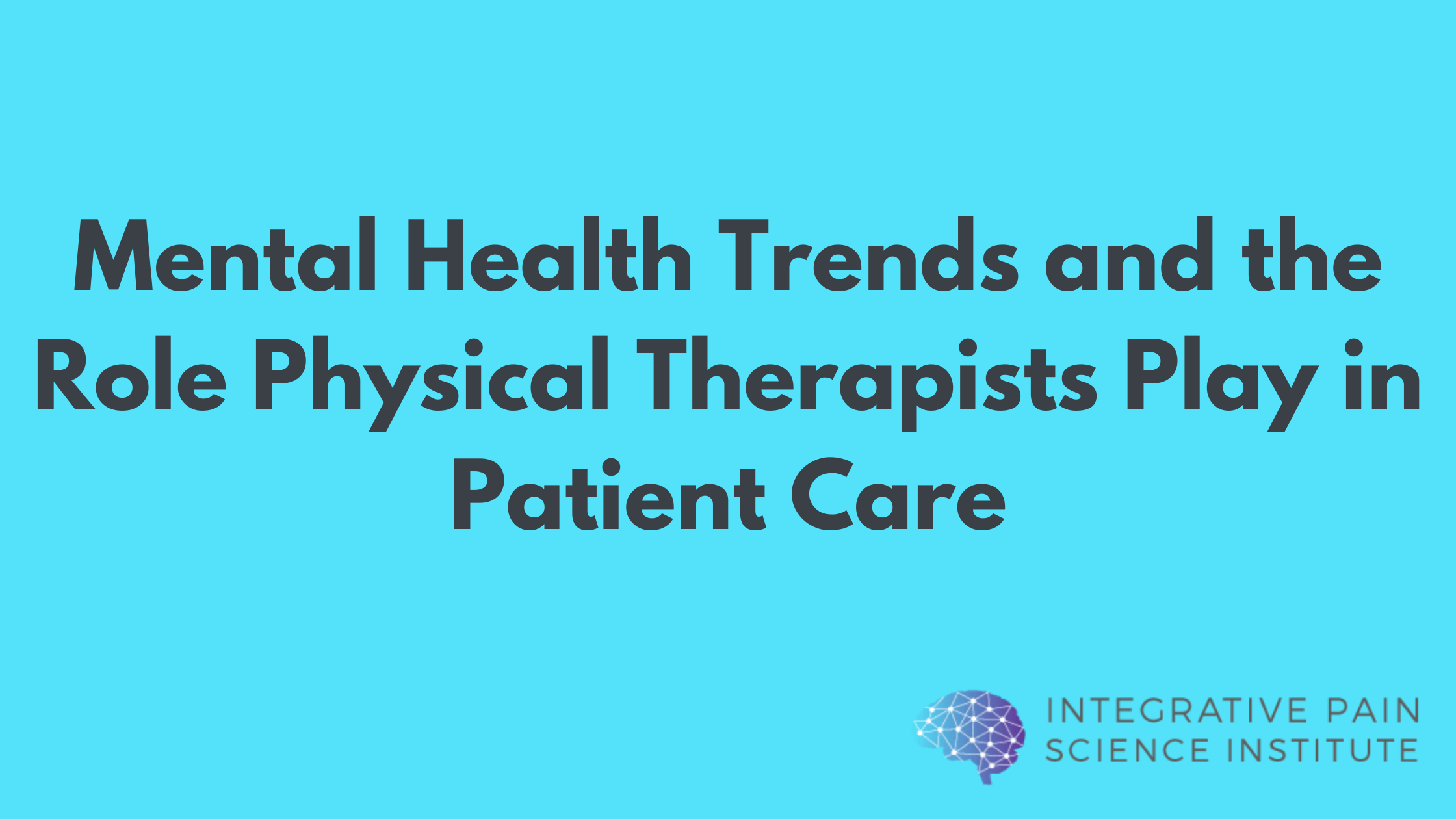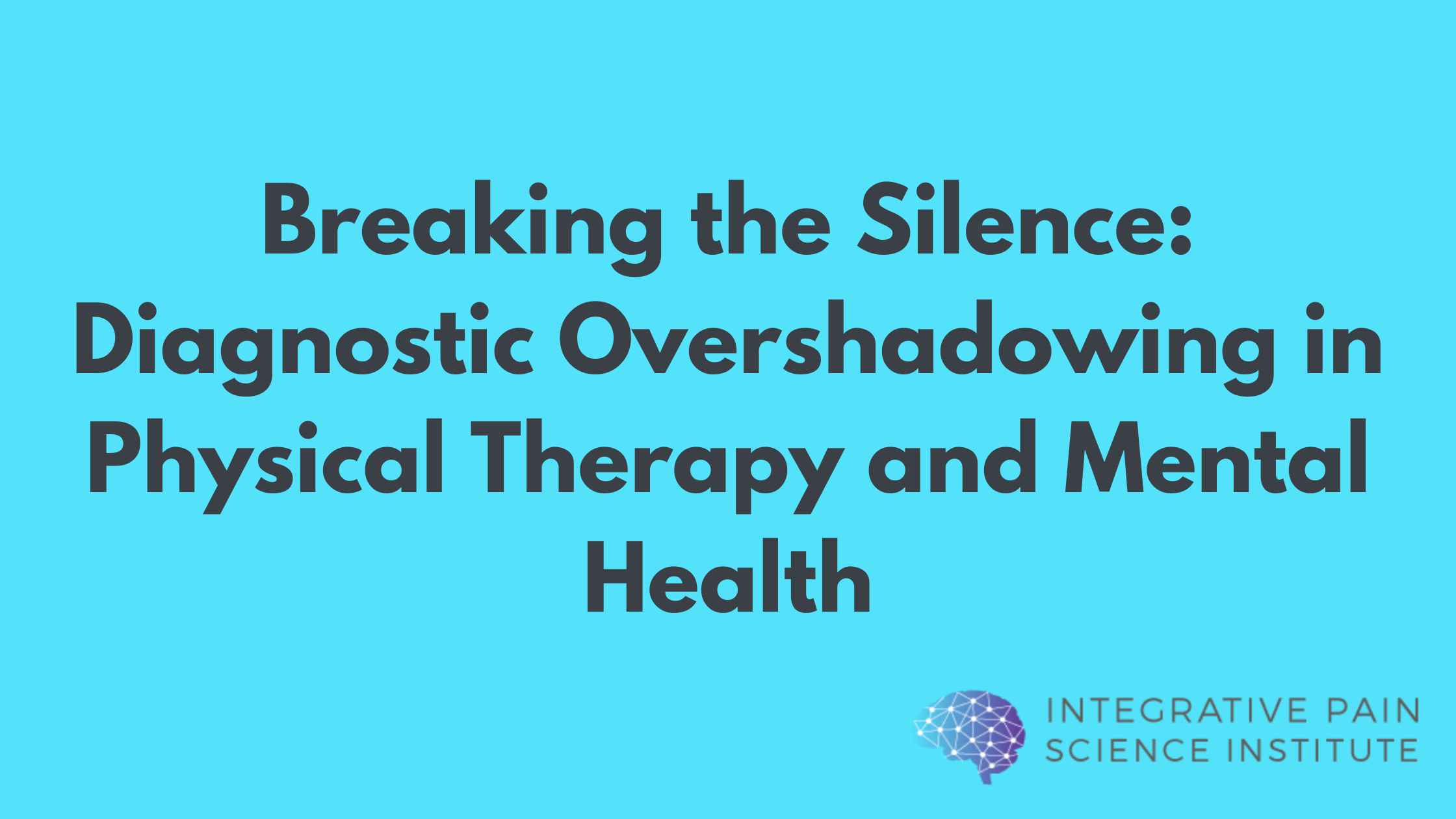Should PTs include functional nutrition services to patients?
Those suffering from chronic pain are often on a desperate quest for solutions that feel as tangible as the pain itself.
It’s likely they’ve tried a number of treatments, medications, and/or even so-called “New Age” remedies which amounted to little more than trial and error. This can lead to additional levels of anxiety that only manages to increase pain.
And, while physical therapy itself is proven to be a safe and effective treatment option for those suffering from chronic pain, even this route has its limits when not fully aligned with another critical aspect of generating positive, long-term outcomes:
The food we eat.

Reams of medical research has shown that one’s level of functional nutrition is irrefutably aligned with inflammation, which is linked to chronic pain and a majority of non-communicable diseases.
And yet, physical therapists often feel ill-equipped to address this all-important factor, despite its roll in overall wellness, as well as pain and disease management.
For physical therapists to do better in improving patient outcomes, reversing pain and, ultimately, transforming their practice, this needs to change.
Functional Nutrition Services: Uniquely Positioned
It’s important to note that in today’s health care environment, patients want to be empowered to take more control over their wellness journeys.
Often, they’re looking for more natural, long-term solutions for managing and preventing pain and inflammation, and they expect their health care providers to be on a similar page.
This should come as great news to physical therapists, who are uniquely positioned to address chronic pain issues from safer, more holistic perspective. It’s difficult to do this, however, without addressing nutrition, which is one of the key elements of many of the conditions physical therapists treat.

Functional Nutrition Services: Nutrition & Inflammation
From conditions causes from obesity and from living a sedentary lifestyle, to most inflammatory diseases, nutrition must play a central role in treatment before real, long-lasting changes can be made.
Being trained to properly assess a patient’s nutrition and eating habits, in other words – when coupled with a PTs expertise in assessing a person’s ability to move properly and with minimal pain – can allow a physical therapist to treat patients in a more well-rounded way.
Doing so can achieve the following benefits:
- It can accelerate the healing process while reducing the incidence of pain.
- It can significantly improve patient outcomes and satisfaction.
- One can achieve credibility as a valuable, go-to resource for chronic pain treatment within your community.
It does this by helping patients reduce inflammation in their bodies, which of course is the body’s immune response to toxins like those found in the typical “American diet.” Adopting a more anti-inflammation diet, studies show, will help purify the body, resulting in less inflammation and less overall pain.
[Read More: Nutrition Guidance in Physical Therapy]
Common Ailments
This ability to address functional nutrition within one’s clinic will allow a physical therapist to more effectively address a number of complicated issues, leading to greater outcomes throughout a broader patient base.
Such conditions include:
- Obesity
- Osteoarthritis
- Autoimmune Disease
- Prediabetes & Type 2 Diabetes
Each of these conditions, and a number of others, involve not just how a person is able to move today or in the future. It also involves how a person fuels this movement – preferably in a way that benefits long-term, pain-free health.
Movement and nutrition are unquestionably intertwined. To truly treat a person (and not simply an ailment) requires that a physical therapist is able to assess and treat both ends of the spectrum.
Dr. Tatta’s simple and effective pain assessment tools. Quickly and easily assess pain so you can develop actionable solutions in less time.
Nutrition in Practice
As movement and nutrition are forever linked, it’s paramount physical therapists are trained to assess both ends of the spectrum in order to treat the whole person – not just the ailment.

To do this, however, will require that PTs include functional nutrition as part of their baseline services.
Integrating functional nutrition programs for the treatment of pain within a PT clinic can completely transform the practice, allowing its staff to treat patients with more complex conditions while setting it apart within its local health care market.
Here at the Integrative Pain Science Institute, we work with physical therapists every day to ensure they have the tools to more fully treat chronic pain suffers using the principles of both physical therapy and functional nutrition.
We do this by offering information, courses and training in treating pain and inflammation through nutritional interventions – all with an eye on helping clinics further improve outcomes with their patients.
Learn more about our nutrition and physical therapy course here: Functional Nutrition for Pain and Inflammation.



